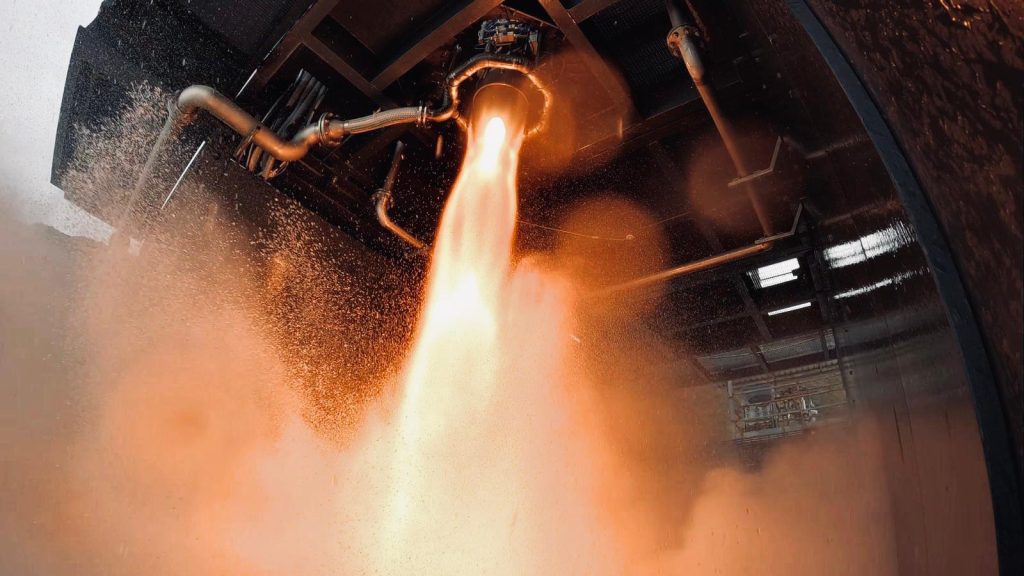Trends in the UK Space Industry

The UK space industry has witnessed a transformative shift in recent years, driven in large part by targeted government support and strategic investments. Recognizing the pivotal role that space technology plays in economic growth, national security, and scientific advancement, the UK has embraced a proactive approach to bolstering the industry. From such rapid industry development have emerged prominent trends in UK space which outline the direction in which the industry is headed.
TREND 1: Surge in Funding for Research and Development
The UK's space sector has been thriving with increased investments, leading to a rise in space-related activities. Both the public and private sectors have experienced notable growth in the UK's space industry.
Historically, the UK government’s allocation towards space research and development was modest. Investment was primarily in line with the nation’s limited ambition in the space sector, particularly following dismantling of the Black Arrow project in 1971. However, the last few years have seen a discernible increase in government funding dedicated to space research and development. This surge indicates a recognition of the multi-faceted benefits of space technology – from fostering economic growth and generating high-skilled jobs to enabling scientific breakthroughs. It’s a clear reflection of the government’s intent to position the UK as a formidable player in the global space industry.
Prior to 2010, space activities in the UK were coordinated by multiple entities with no centralised body overseeing the broader strategy. The establishment of the UK Space Agency brought a cohesiveness to the UK’s space strategy. Acting as a nexus between government, industry stakeholders, and academia, the UKSA has streamlined efforts, defined clear objectives, and provided a platform for collaboration. This centralised approach has fostered efficiency, ensuring that resources and expertise are leveraged to their utmost potential.
In turn, increased government funding has spurred technological advancements and attracted private investment to the UK's space sector. This has made the industry more competitive globally. Government funding has also enabled the development of essential infrastructure for space exploration, leading to job creation and economic benefits. The impact of increased government funding on the UK's space industry is significant and far-reaching.

TREND 2: The Rise of Small Sats and Small Sat Launchers
Space-related manufacturing in the UK has increased exponentially, with both satellite and launch-related development demonstrating a sharp increase in the last decade. Satellite manufacturing has emerged as one of the powerhouse sectors of the UK, with the central belt of Scotland overseeing the manufacture of the highest number of satellites in Europe. With a diverse range of satellite types coming out of the country, the UK is earning its place as a significant contributor of space technology, catering to an array of orbital needs.
Small satellites, also known as Small Sats, have become increasingly prominent in the modern space industry. These small satellites have revolutionized the accessibility and affordability of space missions, enabling better earth observation and data collection. In the UK, there has been a noticeable growth in the manufacturing and deployment of small sats, playing a significant role in various applications, such as telecommunications and scientific research. Small sats offer cost-effective solutions for space exploration and research. Their agility allows for quick deployment during specific missions, enabling more frequent and targeted data collection. Additionally, small sats enhance our understanding of the Earth's environment and climate.
As a result, smaller launchers have emerged from the country, boasting agile and innovative technology which ensures to fill this gap and award the UK a seat at the global space table. The UK is steadily advancing towards establishing domestic satellite launch capabilities, with companies like Skyrora leading the way towards dedicated sovereign launch, ensuring control and flexibility over satellite deployment.

TREND 3: Growth of Private Companies in the UK Space Industry
The UK's space industry has experienced a rise in private companies joining the market, contributing to innovation and competition. UK-based organisations are exploring different aspects of the space industry, including satellite manufacturing and space applications. These private companies are also collaborating with international partners to drive growth. Their involvement is shaping the future of the UK's space industry.
Skyrora stands as a testament to the burgeoning success of private enterprises in the UK's space sector. Since its inception, the Scotland-based company has rapidly emerged as a trailblazer in rocket manufacturing and space solutions, signifying the nation's renewed vigour in launch and commercial satellite launches. Skyrora's dedication to using eco-friendly propellants, coupled with successful engine qualification and suborbital launches, underscores the UK's commitment to merging technological innovation with environmental consciousness. Skyrora's achievements not only highlight the immense potential within the UK's private space industry but also set a promising trajectory for the sector's sustainable growth in the coming years.

TREND 4: Infrastructure Development for Space Launch
The UK ‘Space Race’ does not exist solely in the realm of space exploration. In fact, this would not be possible without the construction of gateways on Earth which facilitate sovereign launch. The UK, having acknowledged the rapid growth of space in the country, has dedicated several resources to establishing ground infrastructure for this purpose.
The establishment of spaceports in the UK will enable sovereign launch, attracting space companies and boosting the economy of the regions they are located in. These spaceports will play a crucial role in the UK's participation in the global space race, demonstrating the government's commitment to the UK's space sector. Additionally, spaceports will provide opportunities for research, technology development, and international collaborations.
Saxavord Spaceport, located on the northernmost island of Unst in Shetland, Scotland, represents the growing commitment to launch in the UK. As Europe's most northerly commercial satellite launch service, the spaceport is uniquely positioned to provide access to a variety of polar and sun-synchronous orbits. Harnessing the natural advantage of its geographical location, Saxavord Spaceport has not only bolstered the local economy with opportunities but also enhanced the European space infrastructure, marking a significant stride in making space more accessible to various stakeholders. The development of such spaceports underscores the significance of infrastructure investment in paving the way for the next era of space discovery and commercial utilization.

Future Projections for the UK Space Industry
The UK space industry is poised for exciting developments in the coming years. Small satellites and in-orbit servicing is set to revolutionize the industry, while the growing demand for broadband connectivity will drive the deployment of satellite networks. UK-based organizations will increasingly focus on earth observation and data analytics, while international partnerships and collaborations will foster innovation and drive the industry's growth.
These future projections pose several unique opportunities to stakeholders in UK space. Investors have been presented with the opportunity to support and benefit from the growth of the UK space industry. With the increasing demand for satellite services and innovative space technologies, there are potential high returns on investment.
Further, collaborating with international partners enables the UK's space industry to access global markets and expertise. Partnerships with organizations like the European Space Agency foster innovation and knowledge exchange. This international collaboration strengthens the UK's position as a leading player in the global space economy, accelerating technological advancements through sharing resources and expertise.



